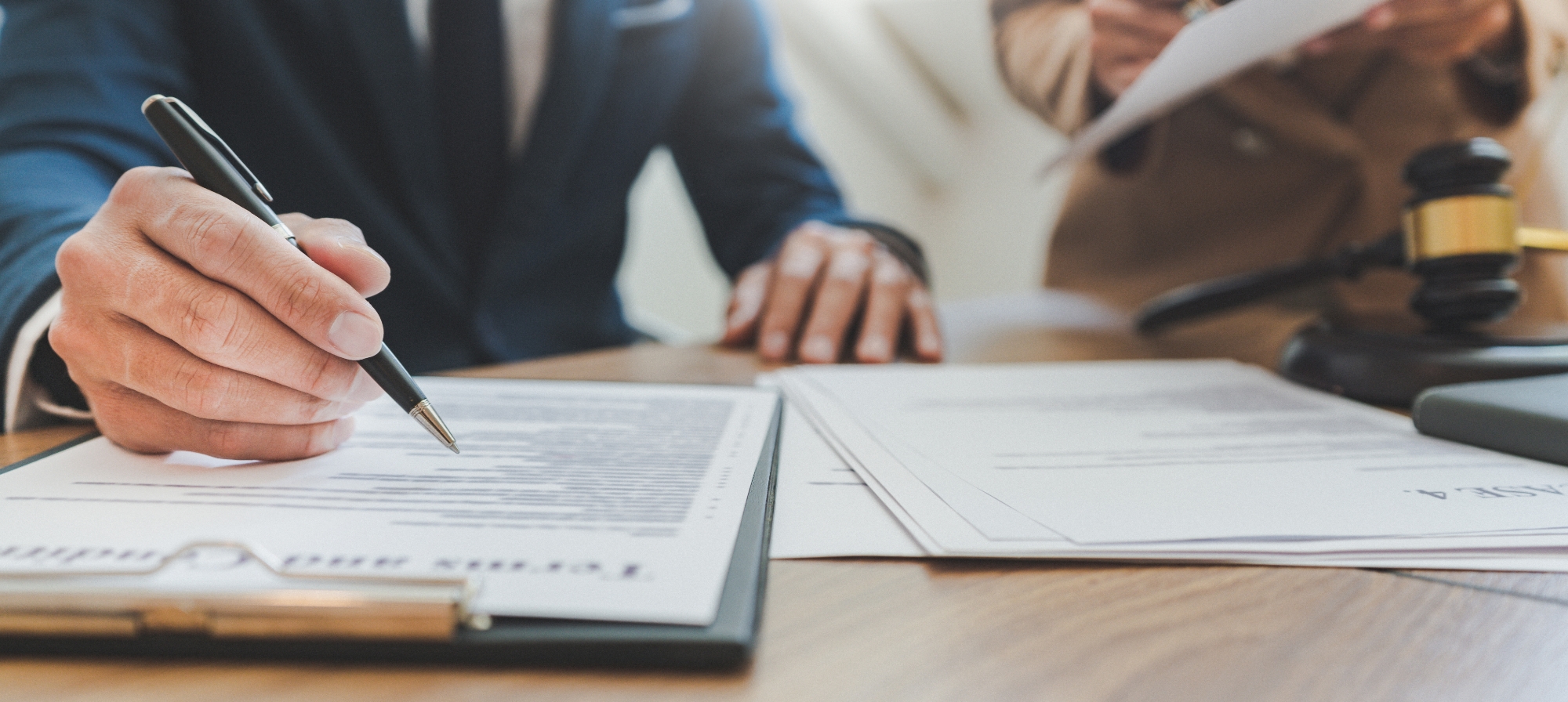Personal injury lawsuits involve a variety of stages, steps, and procedures to get from car crash to compensation, and they can take anywhere from a few months to a few years to settle. If you’ve been in an auto accident, it’s essential to understand the stages in a typical injury lawsuit.
Because injury litigation requires specialized knowledge and experience, it’s in your best interest to work with an experienced car accident attorney. That way, you can focus on your health and improve your chances of recovering the full compensation that you deserve.
In this article, we’ll walk you through the three main phases of a car accident lawsuit so that you know what to expect from the legal process following your claim.
1. Pre-Litigation: Building Your Case and Negotiating With the Insurance Company
In most injury claims, you won’t immediately file a lawsuit. Instead, you and your attorney will investigate your crash and collect facts and documents that support your allegations. Sometimes called the pre-litigation or pre-suit phase, this early stage is essential to a well-developed injury claim.
It involves a series of steps, including:
Initial Evaluation With a Personal Injury Lawyer
At the start of any case, you will have an initial consultation with your auto accident attorney. During this meeting, you will discuss the details of your case and determine whether you have a valid personal injury claim.
Expect the lawyer to ask you a lot of questions, and don’t be afraid to ask questions of your own! Detailed questions about the process, whether your car accident lawyer has taken similar cases to trial (and how they went), and other matters are welcome. Remember, this time is not just for your lawyer to get to know you and your car accident case, but also for you to determine whether the lawyer is good fit for your needs, too.
Most personal injury lawyers, including those at Crosley Law, will conduct this initial case evaluation free of charge.
Documentation and Calculation of Damages
One of the first things your attorney will do is ask for your medical records and history so that they can understand the extent of the physical, emotional, and psychological injuries you suffered from the crash. Your lawyer may also ask you for copies of your medical bills associated with the crash.
Your potential compensation may include not only economic damages (like existing and projected future medical expenses, property damage, and lost wages), but also non-economic damages like pain and suffering, loss of enjoyment of life, and other intangible losses.
Once your attorney has documented the extent of the crash’s physical, psychological, and financial impact, they will have an estimate of your total damages and amount of compensation you could be entitled to.
Crash and Negligence Investigation
In addition to collecting medical treatment records, your attorney may also investigate the accident scene, obtain copies of police reports, and interview witnesses. They may also evaluate the condition of the other vehicle and pull the negligent party’s driving or mobile phone records. All this data will help prove that the at-fault driver was negligent and caused your wreck and injuries.
RELATED ARTICLE: Understanding Negligence in Your Personal Injury Claim
Consultation With Experts
Consulting with experts is essential to developing a strong case. Experienced car accident attorneys build networks of experts who can be called upon to consult on specific matters. This network may include:
- Physicians and medical specialists
- Accident reconstruction experts
- Engineers and scientists
- Mechanics
- Economists
- Life care planners
Insurance Company Negotiation
Your attorney will negotiate with insurance adjusters in an attempt to resolve your case without a lawsuit.
In most cases, these discussions will be with the at-fault driver’s insurance company. However, if the driver was uninsured, or the policy limits of their liability insurance are insufficient to cover your damages, you may also (or additionally) need to make a claim against your own auto insurance company, provided you bought uninsured and underinsured motorist (UM/UIM) coverage as part of your insurance policy.
Many insurance claims settle out of court after intense negotiation. However, if the insurance companies refuse to offer a fair settlement, the claim often will progress to a lawsuit.
2. Litigation: Filing a Lawsuit and Preparing for Trial
At this stage, you formally file a lawsuit against the at-fault parties and the court becomes involved. While settlement negotiations will continue, you and your lawyer will have to follow the court’s procedural rules and prepare for trial.
Filing a Lawsuit
When you file a lawsuit, you must provide the court with a written complaint and other paperwork, pay a filing fee, and serve your papers on the other party. While you can file a lawsuit on your own, most accident victims decide to work with an experienced injury lawyer, since it’s easy to make mistakes that can result in lost compensation or even outright dismissal of the case.
RELATED: What Is a Lawsuit and How Does It Fit Into My Personal Injury Claim?
Discovery
Discovery is a formal process, where the parties to a lawsuit share documents, evidence, and other information with each other. Although it might seem odd to have to share information with the “other side,” to prepare for a potential trial both parties have a legal right to all the information and evidence that may be considered.
Your attorney will ask questions and request documents from the opposing lawyers, who will do the same in return. You may have to answer a written series of questions from the defendant, called interrogatories.
Broadly speaking, during the discovery process all parties have wide latitude to obtain information relevant (even slightly) to the case, although certain privileged information or conversations (such as those between the accident victim and their attorney, spouse, doctor, or religious advisor) can be kept confidential.
Deposition Testimony
While your attorney will collect witness and expert opinions during the pre-litigation phase, this step of litigation involves a more formal presentation of those testimonies, called a deposition. Depositions are statements taken under oath and can be given by witnesses to the crash (including yourself), the investigating police officer, or any experts who consulted on your case. A court reporter will transcribe each person’s testimony, which can be presented at trial, if necessary.
It’s normal to feel anxious about being deposed by the opposition attorney. Remember that your own attorney will prepare you before the deposition, and be in the room to protect you from any inappropriate questions asked by the defense. In most cases, it’s good practice to stick to short, accurate answers and not to supply any additional information in your response beyond what was asked. If you aren’t sure about an answer, take your time and don’t be afraid to say, “I don’t know” or “I don’t remember,” rather than making a guess about what happened.
RELATED: What Should I Expect If I Have to Give a Deposition?
Mediation and Settlement Negotiations
Lawsuits involve a level of risk; no matter how well prepared you are, juries will sometimes surprise you. This is why injury attorneys often try to settle cases out of court through mediation.
Mediation is a form of alternative dispute resolution where the parties to a lawsuit negotiate with help from a neutral, specially trained party (called a mediator). The mediator tries to help you find common ground and agree on a settlement amount. If the parties cannot negotiate a fair settlement, your case goes to trial.
These conversations are more informal than depositions and happen off the record.
RELATED ARTICLE: Crosley Law Uses Advanced Mediation Tactics to Settle Cases
3. Trial and Appeal: Presenting Your Case to a Jury and Judges
Most personal injury cases can be resolved before reaching the trial stage. But sometimes it is necessary to take a case to court to get the full compensation you deserve.
Trial Court
While it is unusual that an injury case makes it all the way to trial, when the case does go to trial is it likely to be a jury trial, where a group of your peers listens to each side’s arguments and evidence. Based on the facts and law, the jury will then issue a verdict. Your trial might last a few days or a few weeks, as both sides present the evidence, facts, and witness testimony to the judge and jury. If the jury rules in your favor, the trial process is over.
If you and your attorney believe that the court made a legal error, you may be able to file an appeal or use other procedural methods to challenge the decision.
Court of Appeals
An appeal is a request that a higher court review your case. You cannot file an appeal unless the court made a serious error, such as applying the wrong law to your case. If you have grounds for an appeal, you can file with an appellate court.
If you lose the first appeal, you can ask the Texas Supreme Court to review your claim, but it may reject your request. The appeal process is highly complex and involves a variety of possible outcomes and may take more than a year to complete.
Crosley Law: Guiding Our Clients Through Their Complex Injury Claims
At Crosley Law, our personal injury attorneys work with clients at every step of the lawsuit process. We go above and beyond to ensure that our clients’ needs are taken care of during and even after the case.
Given the complexity of the car accident claim and litigation process, it’s always a wise course of action to speak with an experienced attorney as soon as possible. In Texas, the statute of limitations to file a lawsuit against a negligent driver after a motor vehicle accident is two years. Considering how much work needs to be done in the pre-litigation phase before a lawsuit can even be filed, you are strongly encouraged to begin the process as early as you can.
Want to learn more about how our law firm works to get clients and their loved ones the compensation they deserve after a car accident injury—whether through a fair settlement offer, or a jury verdict at trial? Check out our Client Stories or contact us today.
Call at 210-LAW-3000 | 210-529-3000 or complete our online contact form to schedule a free consultation.
The content provided here is for informational purposes only and should not be construed as legal advice on any subject.









